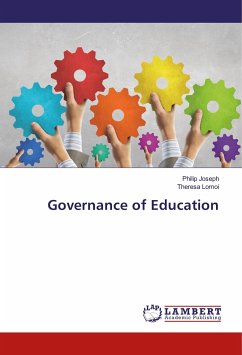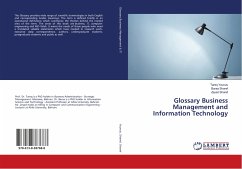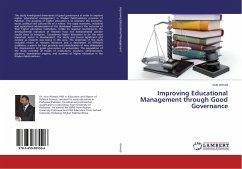An exposure to governance of education in the policy formulation and decision making should be an integral part of preparatory programs for educational leadership and management at lower levels in every country. The authors identify and articulate determinants of sound models of governance that have a bearing on the day to day management of schools and their development in Papua New Guinea in the 21st century. The exposition of various governance strategies are designed to encourage educational leaders and managers undertake constant critical analysis of their day to day practices and align them to the effective functioning of their own schools. The authors scan the macro environment in the perspective of governance and identify the possible risks engendered thereby in a school's operational environment and its development. Their approach is multidisciplinary and in terms of theories in contemporary currency. It is substantiated by case studies of school communities.
Bitte wählen Sie Ihr Anliegen aus.
Rechnungen
Retourenschein anfordern
Bestellstatus
Storno








